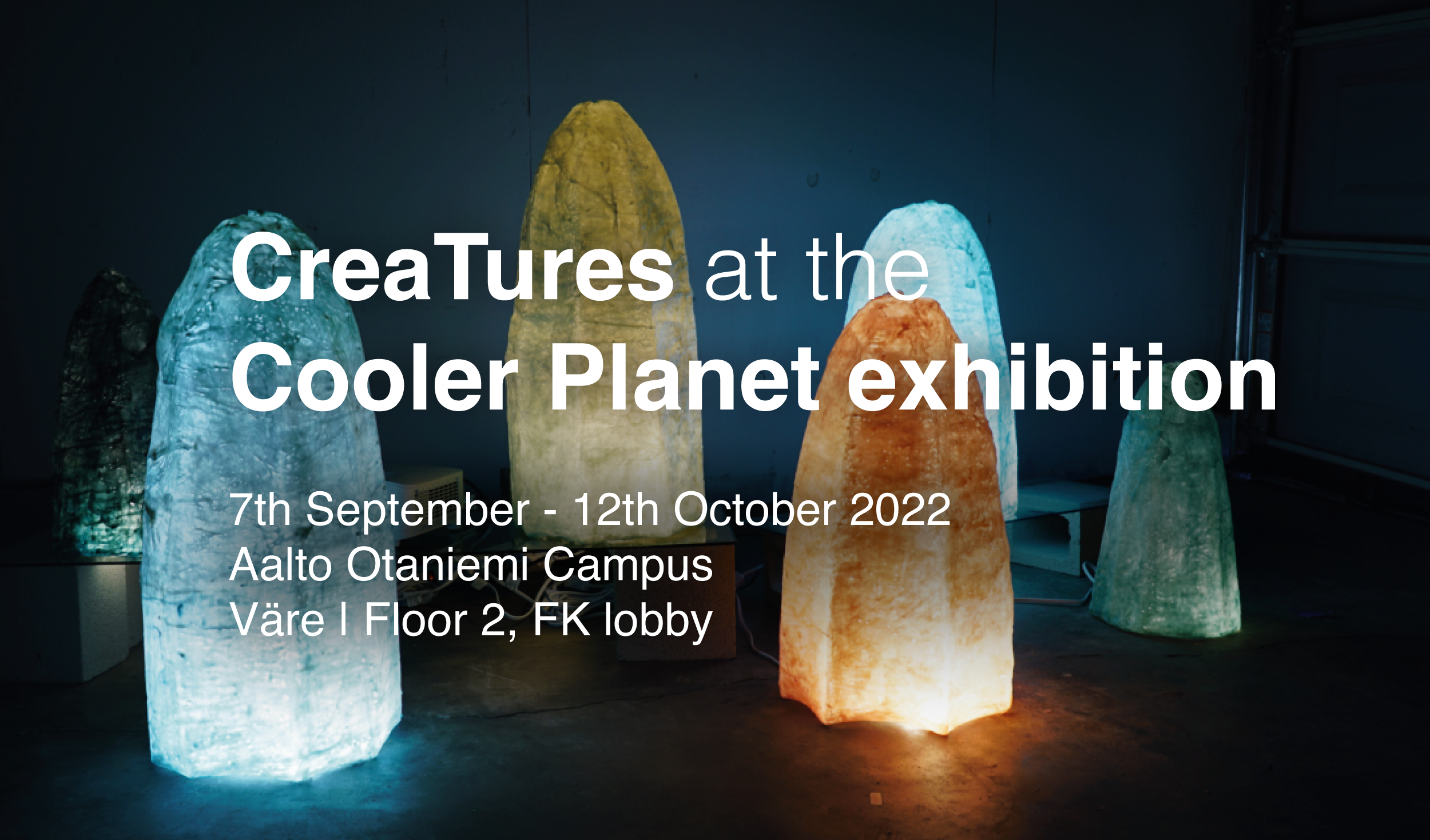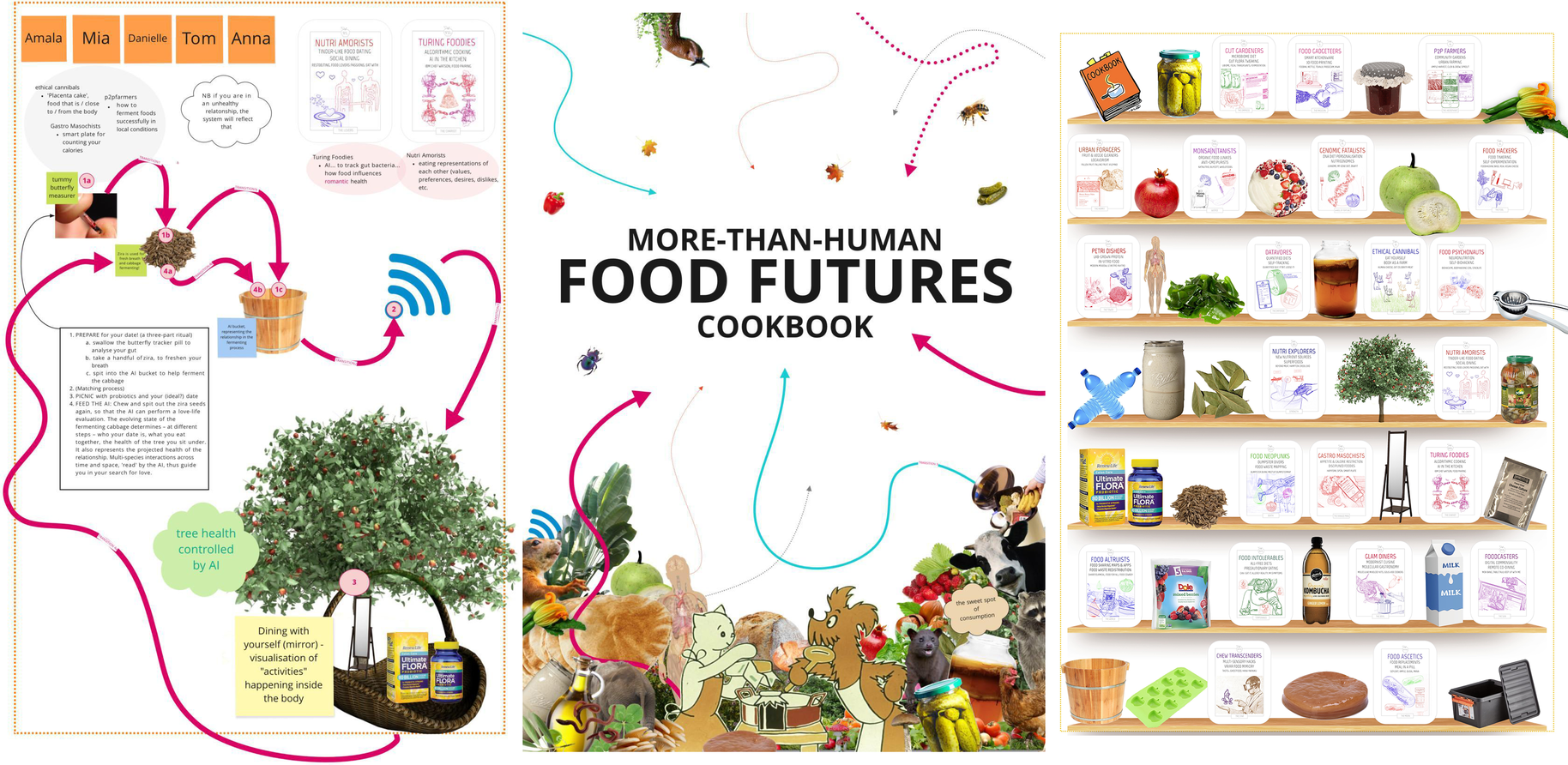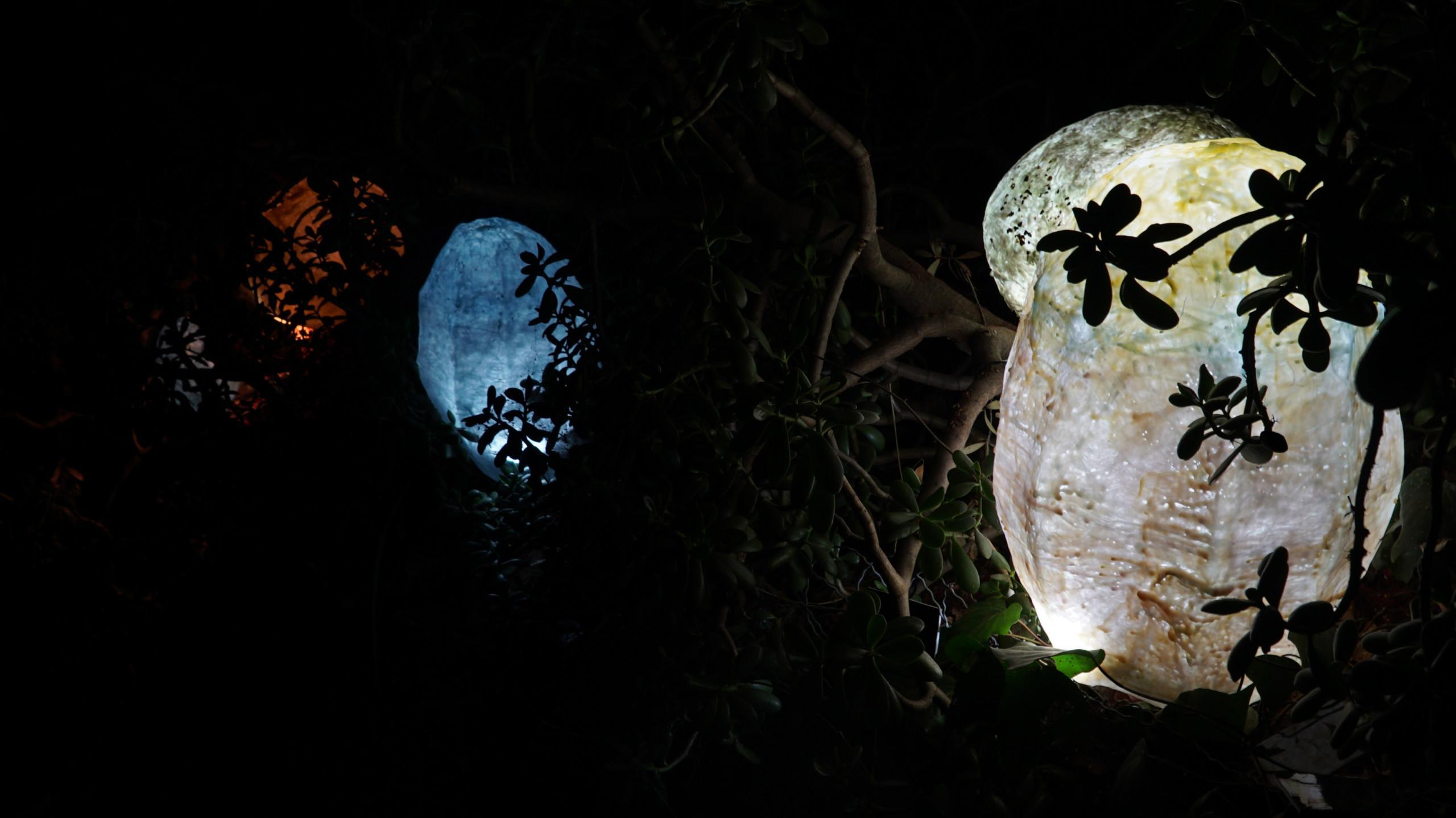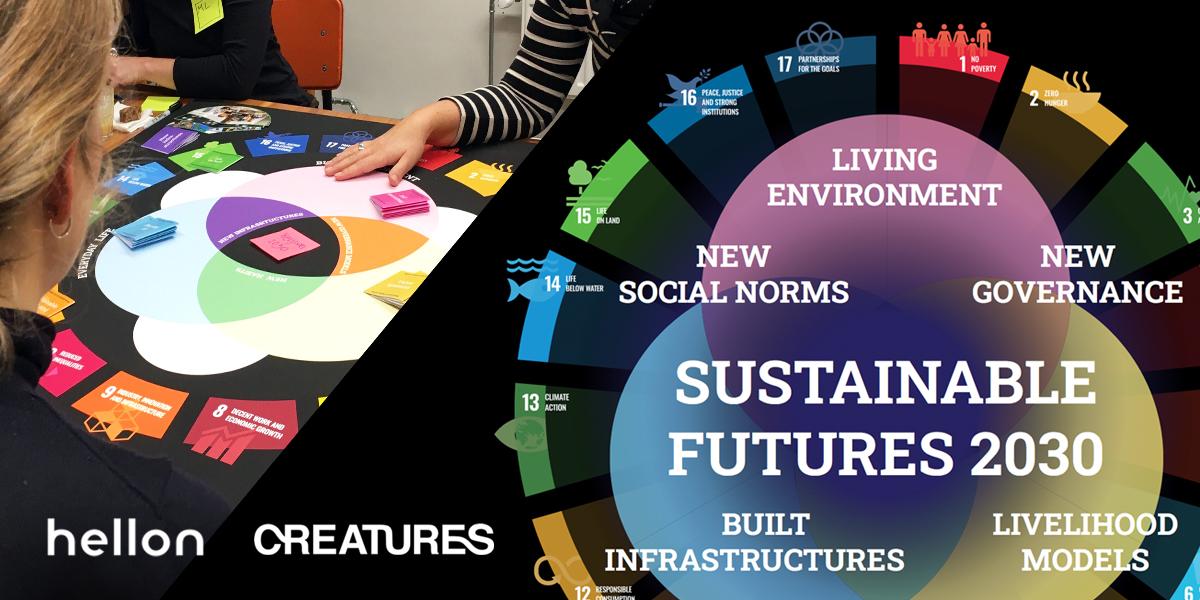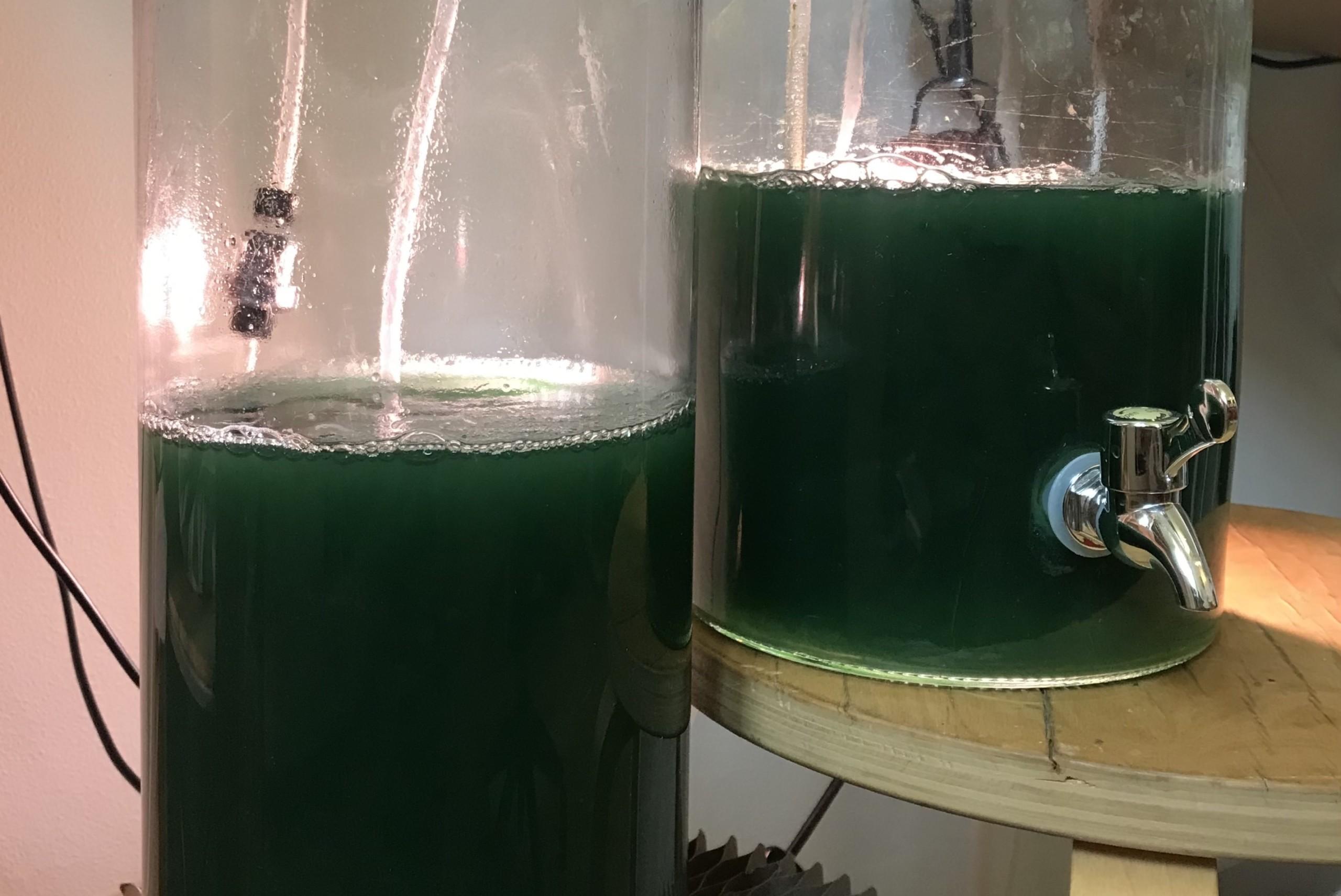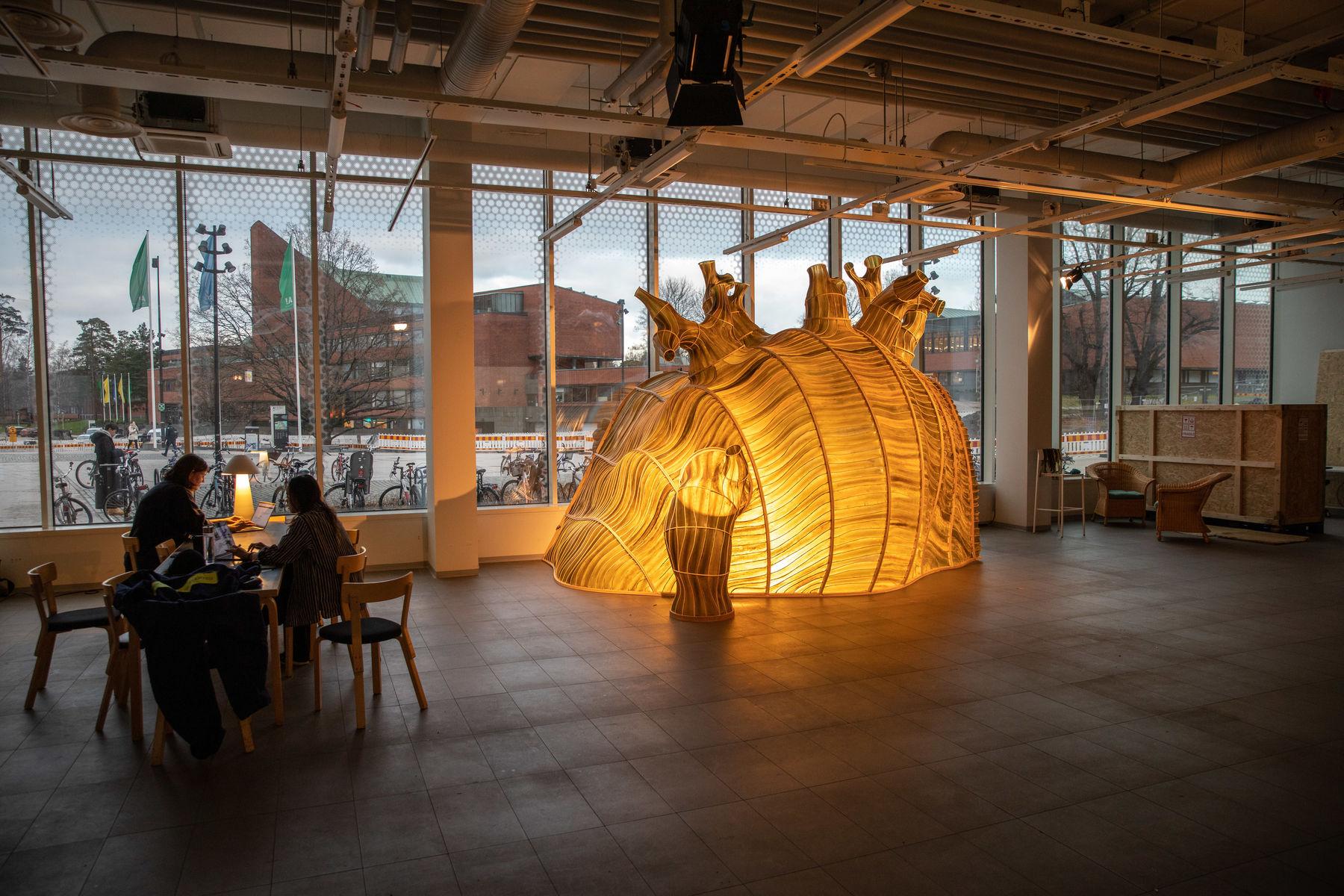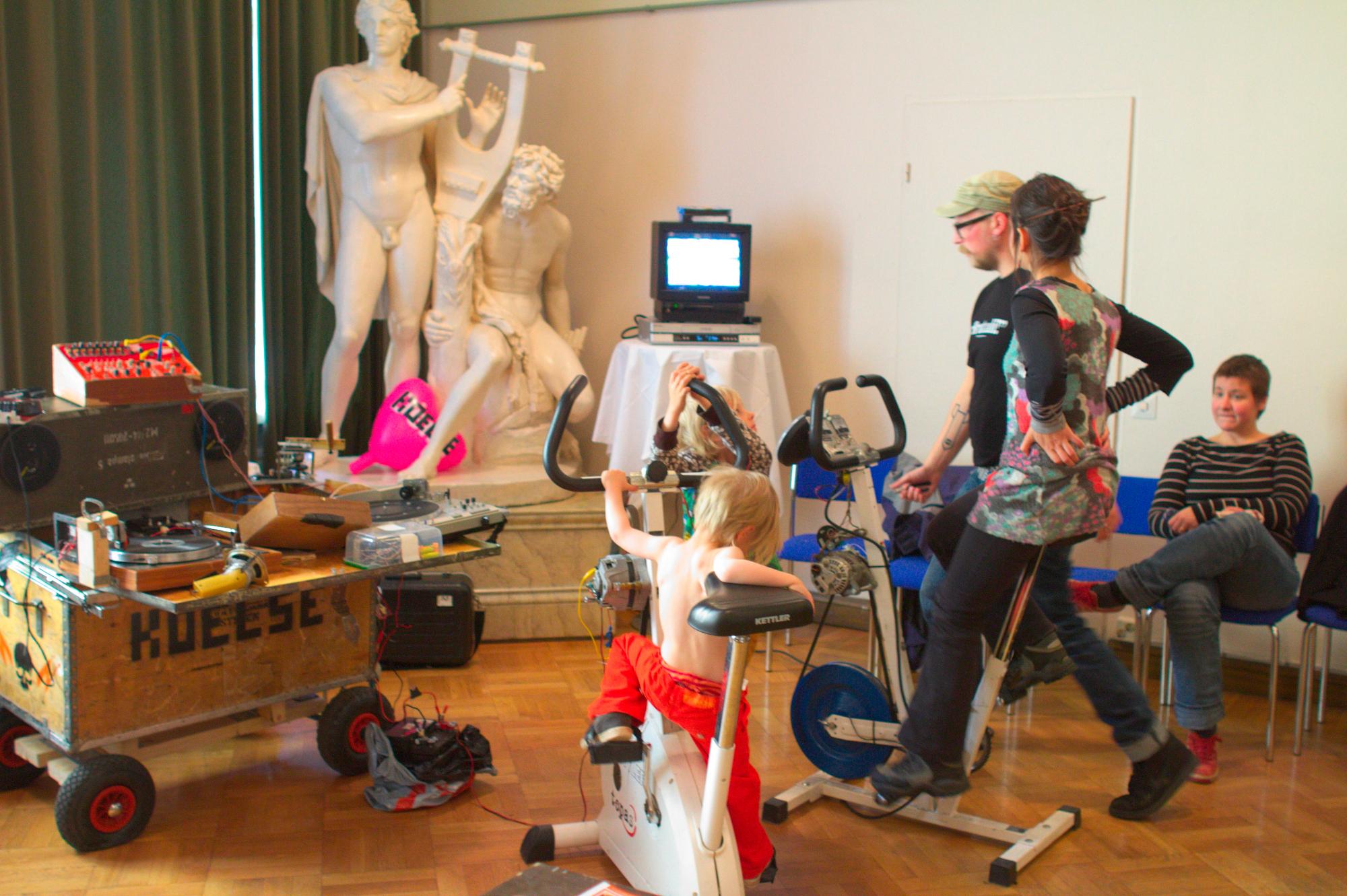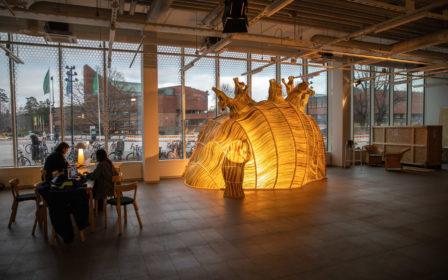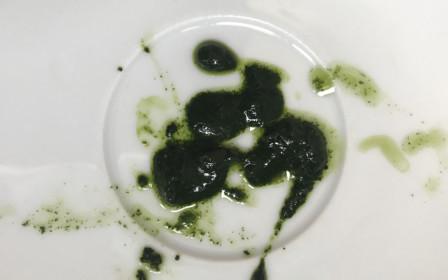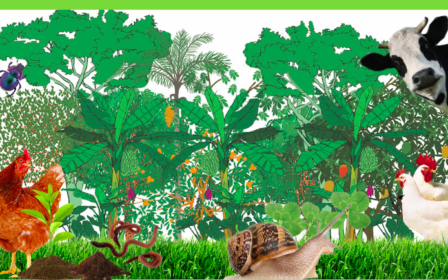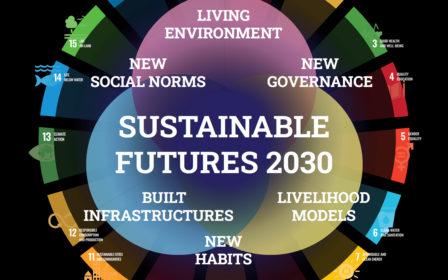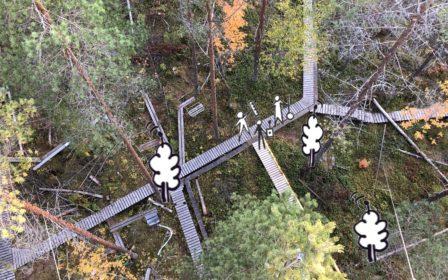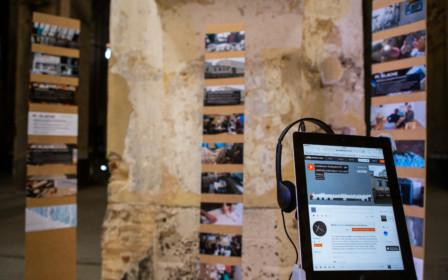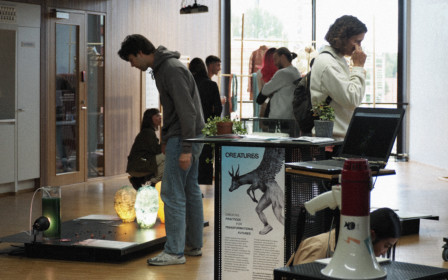🗓 September 7th – October 12th, 2022
📍Aalto Otaniemi Campus, Espoo, Finland (Väre | Floor 2, FK lobby)
A selection of seven experimental productions from the CreaTures Laboratory will be showcased at the Cooler Planet exhibition organised as part of the Helsinki Design Week 2022 🌿🌲🌡️.
The seven CreaTures experimental productions featured at the exhibition are:
Open Forest
Author: Open Forest Collective
Open Forest is a collective, experimental inquiry into different forests and more-than-human dataflows. The project explores how forests and forest data can be produced, thought of and otherwise engaged with, in playful ways that consider perspectives of diverse forest creatures and reach beyond geo-engineering, techno-solutionist perspectives. In practice, the project consists of experimental forest walks followed by a co-creation of forest stories. Through these playful activities, the project entangles existing forests’ datasets with data that questions and obscures the currently collected and available – mostly quantitative – insights about various forests. At Cooler Planet, visitors can browse through existing documentation of the Open Forest walks, stories, and forest patches and contribute their own stories and experiences.
Experimental Food Design for Sustainable Futures
Author: Feeding Food Futures collective
Experimental Food Design for Sustainable Futures was a two day workshop experimenting with food as bio-design material and an accessible starting point from which to explore values, concerns, and imaginaries associated with food futures and climate resilience. Through playful food engagements and discussion, participants co-created eleven experimental food futures recipes that aim to provoke imagination and inspire critical thinking on how human-food practices could be different, supporting sustainable flourishing. The recipes together with other workshop outcomes were compiled into the More-than-Human Food Futures Cookbook which is showcased at the Cooler Planet exhibition and available online, as open access publication.
Nocturne
Author: Isabel Beavers
Nocturne is a series of wild altars meant to be experienced at dusk, dawn, or at night. The altars are experienced outdoors in chance encounters, as well as in museum and gallery exhibitions. Rooted in intimate experiences with the elements, landscape, seascape, and more-than-human species, each site calls upon a specific and ephemeral moment of sensory collaboration: times when the sun, light, sound, and scent coalesce through the senses of the human body to produce sublime or ordinary but intimate moments. The work is an experiment in care-taking, eco-rituals, and a seduction into intimate moments with the more-than-human world. The practice of generating new ceremonies and rituals with more-than-human species serves as a method of re-localization, de-emphasizing the human-human connection, and reemphasizing the grounding impacts of human-more-than-human interactions.
Sustainable Futures Game
Author: Hellon
Accelerating sustainability transitions requires imagination and creativity to concretise desirable futures narratives. For this purpose, Hellon designed the Sustainable Futures Game that connects societal sustainability goals with everyday organisational contexts to help build organisations’ capacities for imagining alternative futures. The game is designed for decision-makers and planners within public and private organisations, offering a creative and holistic approach to address sustainability challenges. The purpose is to help players co-imagine a desirable future state of a commonly decided city in 2030 through fictional storytelling and design prompts and then backcast ways to tackle critical challenges to reach the co-narrated future. As the story is co-narrated, the outcome of each game session varies depending on the participants interests and aspirations. This diversity of perspectives helps the participants find new opportunities and create novel pathways for reaching desirable futures.
Cyano Automaton
Author: Agniezska Pokrywka
The Cyano Automaton author Agniezska Pokrywka recently embarked on an analogue space mission to Mars, in the Utah desert, to fulfill her childhood dream of becoming an astronaut, and to challenge her criticism of space colonization. Her preparations for this adventure included the cultivation of cyanobacteria; more specifically: Arthrospira platensis. Spirulina, as it’s more commonly known, has been used as food in the past (pre-colonial Mexico and Chad); in the present (in hipster and health-oriented communities); and will be in the future (on deep space flights). The spirulina cultivation set-up that is presented here is called Cyano Automaton: a vessel in constant evolution, reflecting the infinite changes that every living system goes through. In spite of these transitions, some questions remain unaltered: What can we learn from this silent observer of our planet and its billion-year-long wisdom?
Baltic Sea Lab
Author: Julia Lohmann & Department of Seaweed
The Baltic Sea Lab develops co-creative ways and tools to activate people to promote sea health. The project aims to grow a network of potential “sea stewards”, caring for their local sea environment through co-creative engagements. In 2020–2021, the Lab with its multi-sensory seaweed pavilion Hidaka Ohmu, hosted exchanges, panels and co-creative ocean literacy and research events, partnering with local Finnish institutions like the John Nurmisen Foundation, the Hanaholmen, and the Tvärminne Zoological Station. Drawing on these activities, a framework was established to support creative practices in engaging communities with ocean literacy: Knowledge (awareness of ecological and cultural issues), Care (empathy, emotional and embodied connection), and Action (active participation, agency).
Pixelache
Author: Andrew Gryf Paterson, Irina Mutt, Sumugan Sivanesan, Antti Ahonen
Pixelache Helsinki is a Finland-based creative association on emerging creative practices with almost 20 years of activity in 2022. Starting as a Festival of Electronic Arts & Subcultures, throughout the past decade the association has been running a trans-disciplinary platform for emerging art, design, research, technology and activism that involved a dynamic local community, and an annual festival experimenting with a rotating directorial model. The rich association’s history and activities in the field of transformational creative practice are the core focus of the association’s process, by engaging with organisational meta-data, and Pixelache’s production office in Suvilahti as a tangible memory device. We set out the hope of answering: How do we keep going? The Cooler Planet exhibition presents two audiozines resulting from an experimental archival and ethnographic work that sought to gather perspectives from active Pixelache members reflecting upon how the organisation has transformed between 2013-2019 via objects and narratives. Within the space are several of the objects referenced in the audiozines, as well as a handmade Gantt chart showing active members in the association.
🌿The Cooler Planet event:
When: 7.9.–12.10.2022
Where: Väre building in Aalto University campus, Otaniementie 14 – the CreaTures exhibition is located in the FK lobby, at the entrance of the Department of Design (2nd floor)
Opening hours: Mon-Thu 7:45–21:00, Fri 7:45–20:00, Sat 9:00–17:00, Sundays and 10.9. Closed
🎤🦑 The CreaTures showcase will be introduced at the Helsinki Design Week Pecha Kucha Night – join us on Wednesday 07.09.2022, at 6-8 pm, in the Aalto campus. More details and registration are available here.
CreaTures showcase at Cooler Planet web.
More about the wider Cooler Planet exhibition is available here.
The Cooler Planet event is organised as a part of Helsinki Design Week’s official festival programme and a World Circular Economy Forum 2022 (WCEF) side event. Aalto University is also one of the EU’s New European Bauhaus partners.
